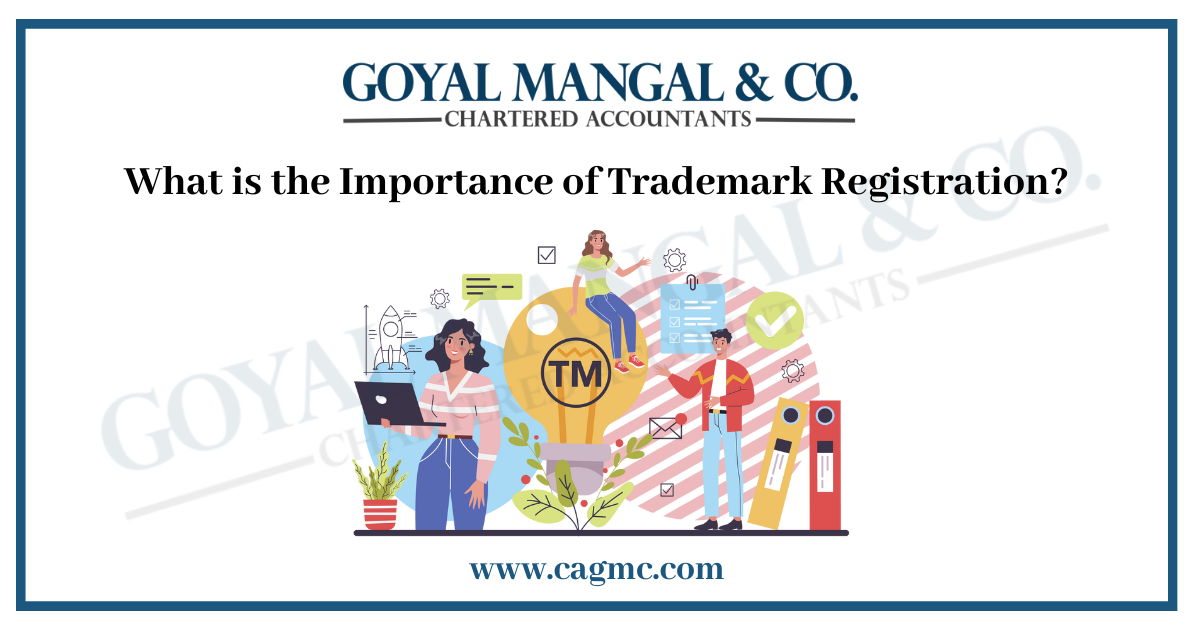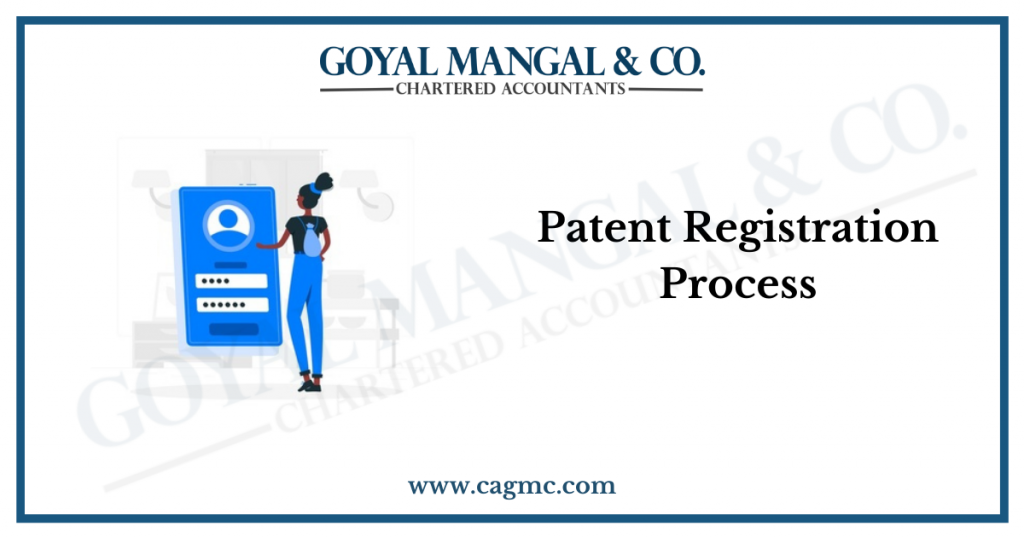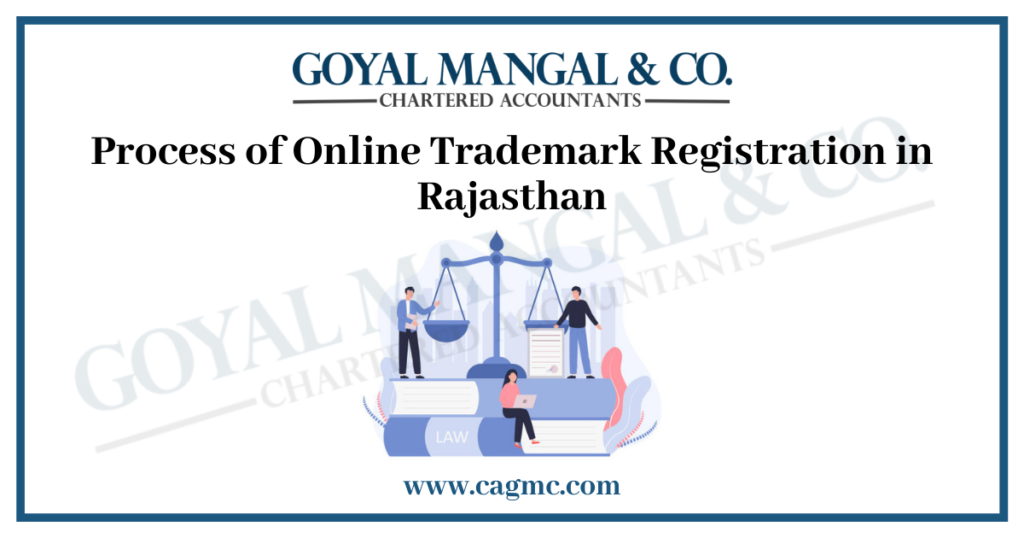
A Trademark plays an important role in the promotion of goods and provides information about the quality of the product. It allows a business to obtain individual rights to use, distribute or assign a trademark. This can be done through Trademark Registration. India is a hugely competitive market for business owners and companies where there is a huge number of new but identical brands/products emerging every day. This is where protecting your brand is necessary to prevent someone else from misusing your name or brand. In this article, we will discuss the necessity/importance of trademark registration in India.
|
Table of Content |
Quick Look
In the modern period, trading has taken on a social tendency where service providers work to create a market for their goods and services while customers work to improve their lives by utilizing the greatest products and services on the market. This factor might occasionally affect customers’ choices to use items from particular Brands. In such a circumstance, it is vital for the brands to assert the originality of their products by obtaining a mark that makes their brands distinctive from others.
Through permanently inscribing the identity of their trademarks through a legal process, which aids them in retaining a distinctive character over the long term, businessmen and service providers are given legal security by Trademark Registration.
What is Trademark?
A Trademark is a brand or logo that you use to distinguish your product from those of your competitors. The term “trademark” is a legal term for “intellectual property.”
It can also be said that a trademark is typically a name, word, phrase, logo, symbol, design, image, or a combination of these elements. A trademark identifies the brand owner of a particular product or service.
After registering their trademarks, the owners get the following rights:
- Preventive Rights: These rights assist businesses in protecting their originality by claiming legal status for their brands.
- Legal Rights: These Rights become effective in the event of infringement by allowing rivals to take legal action in the event of identity theft or any other conduct that violates the rights of trademark holders.
A legal entity’s (individual or corporation) signature or emblem serves as its intellectual property. Simply put, these markings assist the general public in determining the uniqueness of the items and determining whose company or brand they belong to.
Importance of Trademark Registration
A trademark protects your brand and gives you the tools to prevent someone from riding on the back of your business. A trademark is capable of distinguishing the goods or services of one person from those of others and includes the shape of the goods, their packaging, and the combination of colors. Let us know more reasons for the importance of trademark registration in India.
- Valuable Assets: A registered trademark can prove to be a valuable asset to your company or business. These assets are constantly appreciating over time. As your business grows over time, the value of your trademarks automatically increases. So if your business grows, so does the value of your brand.
- Protecting your Brand: A registered trademark establishes ownership of the brand, name, or logo. It protects your brand from any unauthorized use by a third party. A registered trademark proves that the product belongs entirely to you, and you have exclusive rights to use, sell, and modify the mark or goods in any way.
- It gives the Brand Uniqueness: A brand that is unique and different must be registered because every business needs a brand or logo that stands out and differentiates it from others. So a registered trademark gives your brand a unique identity.
- An easy Communication Tool: Yes, trademarks can prove to be an effective and easy communication tool. They speak for themselves. A registered trademark makes it easy to identify which brand your product belongs to. For example, when you see a half-bitten, silver-colored apple on any device, be it a laptop or a phone, you can easily tell that it is an Apple product.
- It’s easy for Customers to Find your Product: A registered trademark makes it easier for customers to find the product. Being a powerful tool and unique in its identity, registered trademarks are easy to find and customers can easily reach your product.
- A Trademark is Forever: A registered trademark can last forever. A trademark registered by any company stays with them forever. Yes, trademark registration is renewed every 10 years. However, the identity she gave the brand remains forever.
Eligibility Criteria for Trademark Registration
In India, a trademark can be applied for by anyone who claims to be the owner of the trademark, be it an individual, proprietor, company, or other legal entity. A trademark application can be filed, and the “TM” symbol can be used within a few days of registration.
The trademark registry takes at least 6–8 months to register if it does not raise any objections. In the event of an objection, it can take up to 18 months. Once a trademark is registered and a certificate of registration is issued, the registered symbol, i.e., R, can be used. Once the trademark registration is done, it will be valid for ten years from the date of registration and must be renewed on time.
What is Trademark Registration and how to get Trademark Registered?
Trademark registration is a legal procedure provided under the Trademarks Act, 1999. Through Trademark Registration, or you can say logo registration or brand registration, you can protect your brand or logo by preventing other people from using it. By registering a trademark, you gain ownership of the logo, name, or brand.
The trademark registration process in India is required if a company or individual intends to protect its logo from misuse by a third party. Registering a trademark would provide a legal right to bring an action against a third party in the event of trademark infringement. Registering a trademark will also give the owner the exclusive right to use it for their products or services.
How do I register a Trademark?
In India, you may register a trademark for a logo, symbol, phrase, and more. It gives the owner many unique rights. However, registering a trademark is a drawn-out process that requires the following procedures;
Search for Trademark: Before beginning the registration procedure, the Trademark specialists check to see if the proposed mark or identity is the same as a submission that has already been registered with the certifying authority (Trademark Registry). The first step in ensuring that the intended mark does not overlap with an existing one is to perform this. If you submit an application without ensuring that no other company has a similar or identical mark, the application may be refused.
Trademark Filing: If the mark is found once the search is complete, an application is sent in the required format with the registration costs listed. The following information must be included in the application for trademark registration that is submitted to the trademark registrar:
- The desired Mark or Logo,
- The Trademark owner’s Name and Address,
- Trademark Class,
- The date that the trademark was first used,
- Describe the goods, services, or products
Trademark Application Number Allotment
After the application is properly filed with the Registrar, the Applicant is assigned a Trademark Application Allotment Number. After receiving the allotted number, the Trademark owner can place the Trademark sign next to the logo.
Classification of Vienna (Scanning)
The Vienna Classification is a Vienna Agreement-established worldwide categorization of figurative components of marks. This codification is used for trademarks.
The status of the Trademark application is “Sent for Vienna Codification” when an allotment number is assigned. This indicates that the work is still in progress, as the assignment of a Trademark Application Number does not guarantee the completion of the registration procedure.
The “Vienna Classification” will be assigned to the Trademark by the Trademark Registrar once the application is filed, based on the figurative aspects of the mark.
Trademark Examination
Once the Vienna Codification is complete, the Trademark registration procedure involves an evaluation of the application by a Trademark Officer. After analyzing the application, the trademark officer will accept or reject it and provide a report.
When the Trademark officer approves the trademark registration application, it is published in the Trademark Journal. When a Trademark officer objects to a trademark registration application, they send the applicant a “Show Cause Notice” and address the objections.
If the Applicant fails to satisfy the Trademark Officer with the arguments, the application is refused, and the trademark applicant may appeal the Trademark Officer’s decision to the Intellectual Property Appellate Board (IPAR).
Trademark publication in a Journal
When the Trademark Registrar approves the trademark registration, it is sent to the Trademark Journal for publication. All trademarks accepted by the Trademark Registrar are published in these weekly magazines.
The goal of posting the proposed trademarks is to allow the public to object to them. If no objections are made, the mark is registered within a 12-week period (After waiting for objection within 90 days of publication).
If the Trademark officer receives additional objections, a hearing will be held for the Applicant and Opposing party to show grounds for the rejection or registration of the Trademark.
Trademark Registration
If the Trademark registration application receives no objections or resistance after all of the preceding phases, it is eligible to obtain;
- The manuscript for a Trademark and
- Trademark Registration Certificate
Once the trademark registration certificate is issued, the ® symbol can be put next to the logo or trademark. The positioning of this sign, as well as the granting of the Trademark certificate, show the owner’s exclusive right to use the Trademark.
Who can opt for Trademark Registration?
The following are qualified for opting for Trademark registration:
- Any Individual person: An individual who is not currently in business can also file a trademark application and obtain a trademark registration for a mark or item that the applicant intends to use in the future.
- Shared ownership: Co-owners of a business can apply for a trademark jointly, and both their names can be mentioned in the application.
- Partner company: When registering a trademark, a partnership business with a maximum of 10 members must state the names of all partners in the application. In addition, if a minor partner is present, the name of the minor’s guardian must be provided.
- LLP (Limited Liability Partnership): An application for a Limited Liability Partnership should be made on behalf of the LLP. It is a legal entity in which each participant has their own identity. As the trademark belongs to the LLP, the partners cannot be applicants. The application must contain the names of all partners.
- Indian Company: Any Indian company, whether Private Company, Public Company, or any other, has to file a trademark application in its own name. As each registered organization has its own legal entity and identity, a company director cannot be a trademark applicant.
- Foreign Company: If a foreign-registered company applies for a trademark in India, it must do so under the company name as registered in the foreign country. The registration type, government, and law should be mentioned here. They have to mention the Indian address from where they are running their business in India.
- Company or Trust: When filing a trademark application on behalf of a trust or company, the managing trustee, chairman, or secretary of the trust or company must be named.
Conclusion
A trademark registration gives exclusive rights to the owner and distinguishes the product from similar products of other businesses. A Trademark proves to be an intangible asset for the owner and protects the brand in the long term. A Trademark gives the owner the exclusive right to use such words, logos, and slogans. In a market like India, it is essential that the brand is protected and safe. Hence, not out of compulsion but out of necessity, it is important to have a trademark registration in India.


